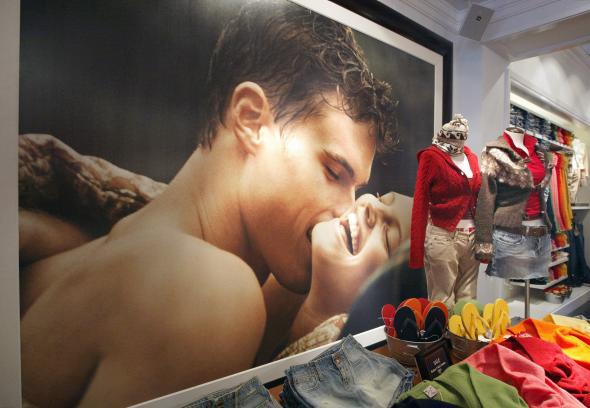The Supreme Court announced Thursday it will hear a high-profile religious discrimination case against clothing company Abercrombie & Fitch brought by a Muslim woman who says she didn’t get a job at the retailer because the company’s dress code didn’t allow for her to wear a head scarf. Here’s more on what exactly transpired during the hiring process via Businessweek:
Samantha Elauf was 17 in 2008 when she applied for a sales job at an Abercrombie Kids store in a mall in Tulsa. She had been told by a friend who worked for the retailer that wearing a hijab wouldn’t be a problem—as long as it wasn’t black. Sales associates can’t wear black at Abercrombie. During her interview, Elauf wore a head scarf and the assistant manager scored her style a 6, which was good enough to be hired. When the assistant manager sought approval for Elauf’s hijab, though, a supervisor said the head scarf didn’t meet Abercrombie’s look policy. Hats are not allowed at Abercrombie. The supervisor later said he didn’t know that Elauf wore the scarf for religious reasons. Elauf wasn’t hired.
“The justices agreed to hear the Obama administration’s appeal of a lower court decision that ruled [Abercrombie] did not discriminate because the job applicant did not specifically say she needed a religious accommodation,” according to the Associated Press. “At issue is how employers must deal with laws that require them to make allowances for a worker’s religious practices, as long as doing so does not cause the business too much hardship.”
Here’s more from the AP on how the case wound up on the Supreme Court docket:
A federal judge initially sided with the Equal Employment Opportunity Commission, which sued on behalf of Samantha Elauf. The agency alleged Elauf wasn’t hired at a Tulsa, Oklahoma, store because her hijab violated Abercrombie’s “look policy,” described at the time as a “classic East Coast collegiate style.” But the 10th U.S. Circuit Court of Appeals reversed that decision. The appeals court said Elauf never directly informed her interviewer she needed a religious accommodation, even though she was wearing the head scarf during her interview. Abercrombie, which has faced slumping sales and could face negative publicity in the case, has pressed on with its defence, saying it was Elauf’s obligation to explain any special needs based on her religion… government lawyers said the appeals court ruling undercuts legal protection for religious practices because it unfairly places the entire the burden on the job applicant to raise the issue. Sometimes job applicants aren’t aware of a potential conflict between a religious practice and a company policy, the government said.
